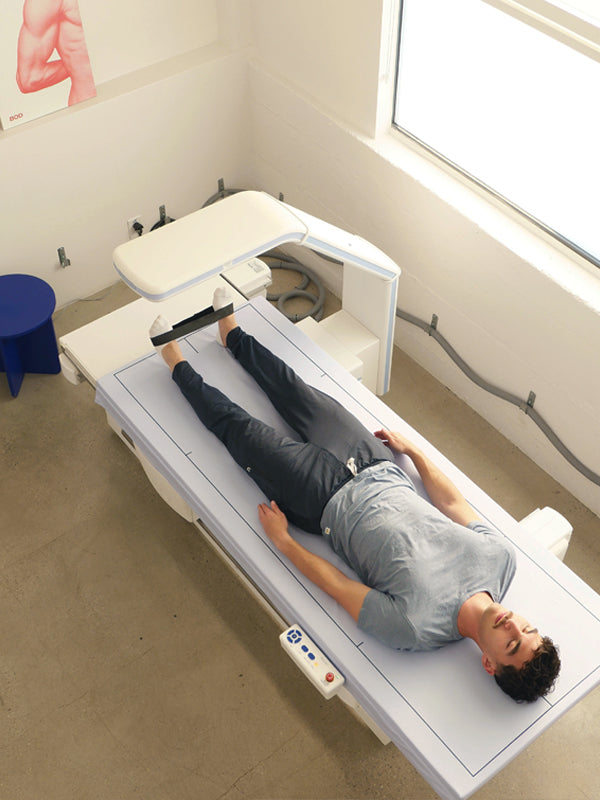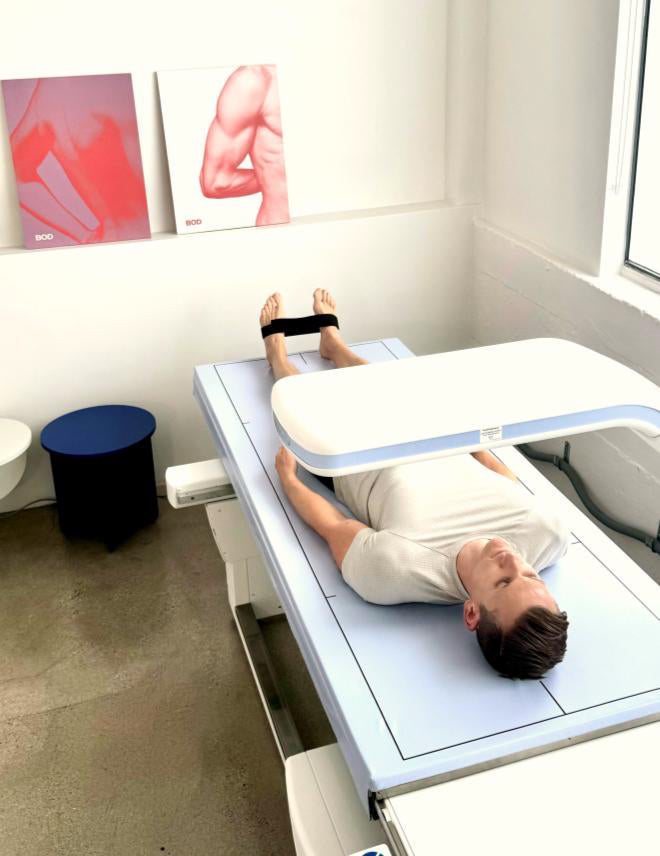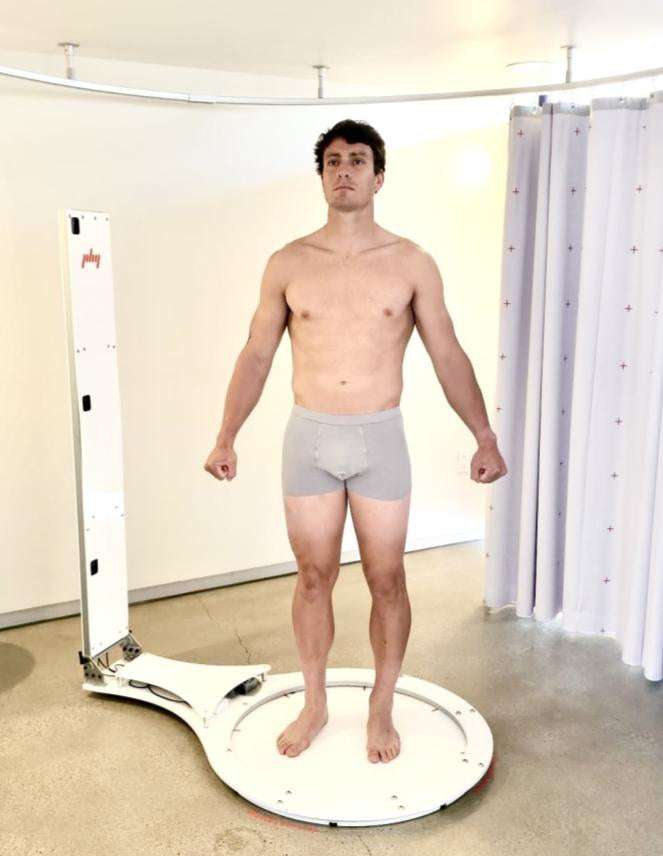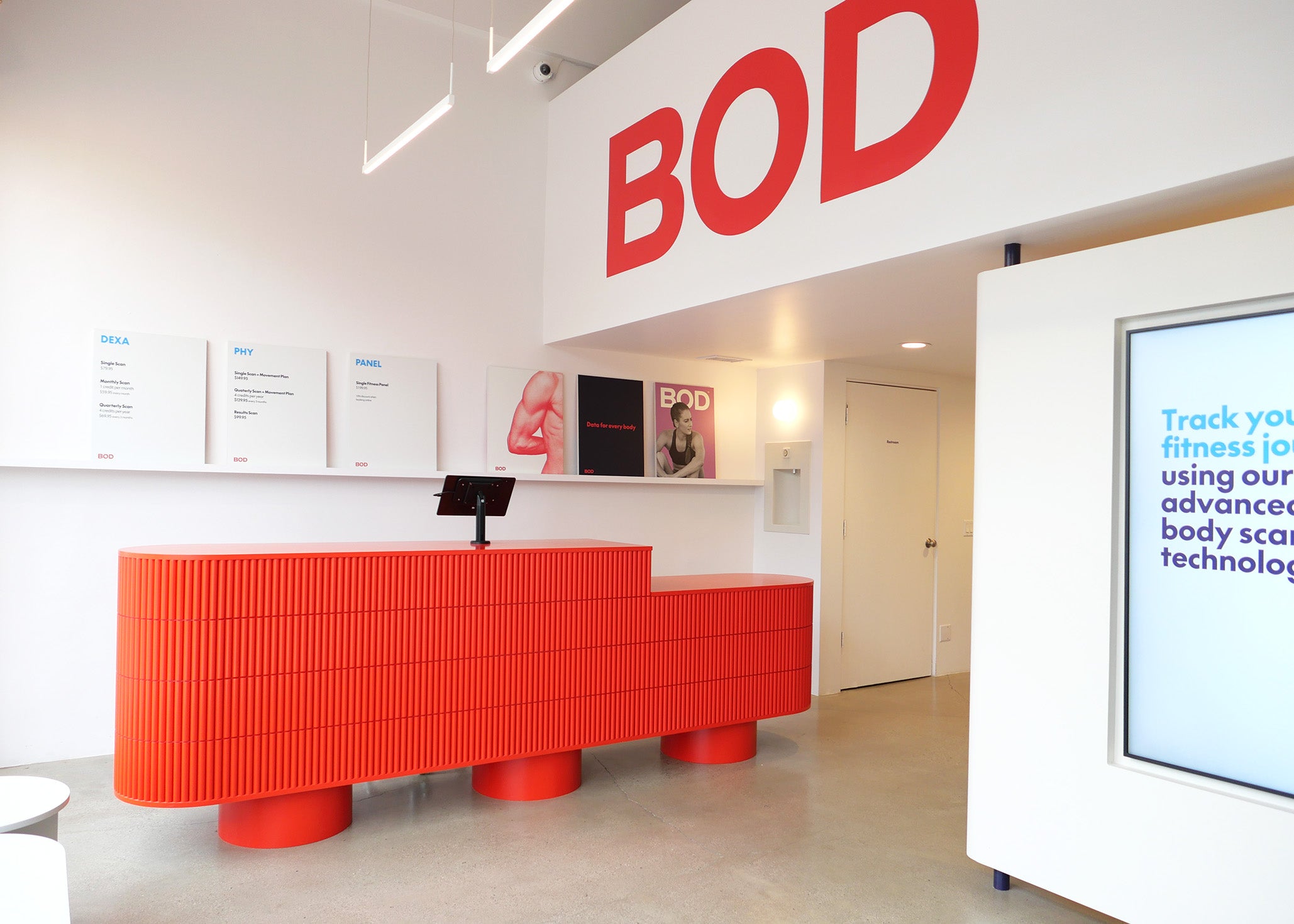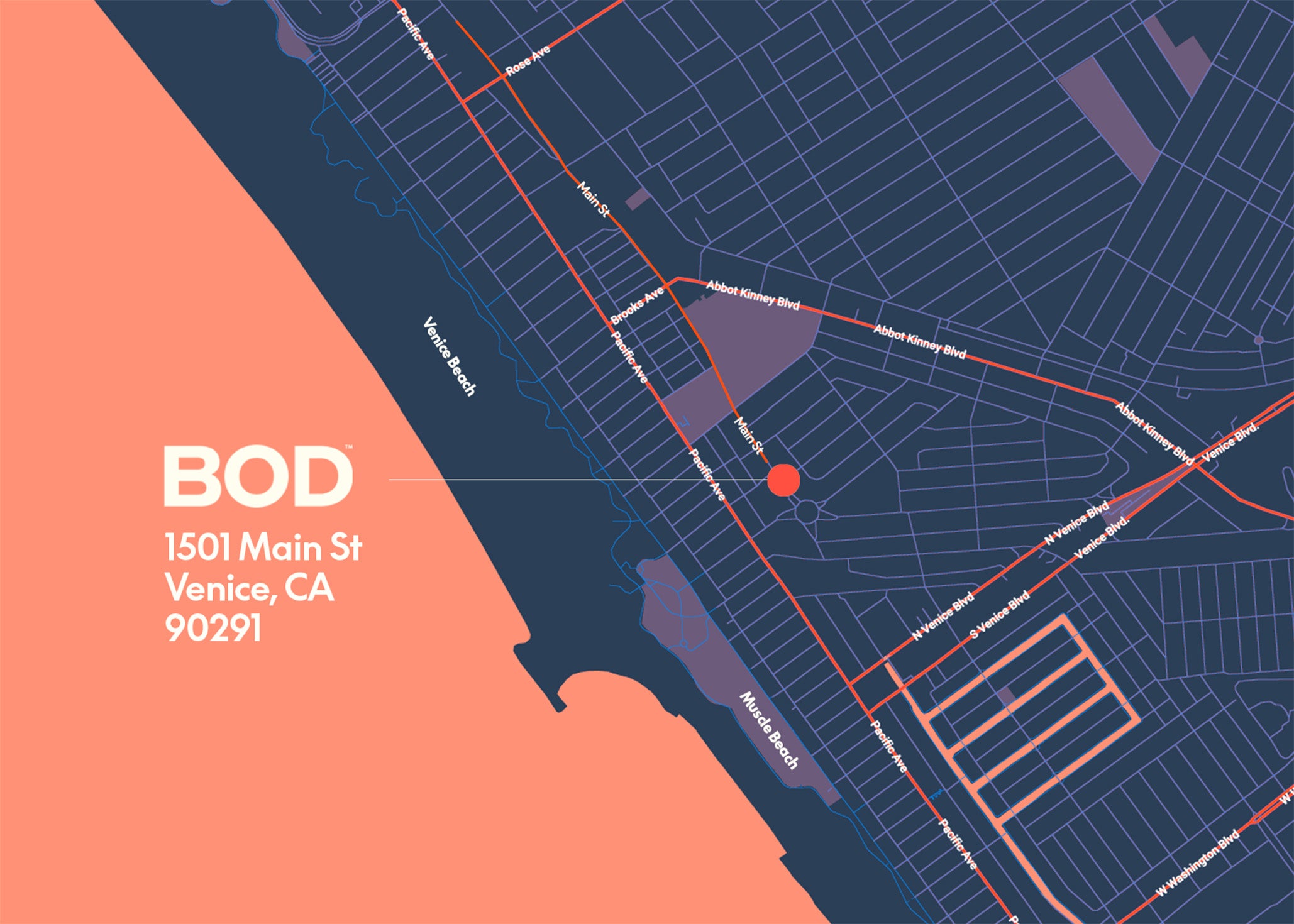Are you ready to transform your health?
Knowing your body and seeing inside is key to transforming your health, reaching peak performance, achieving fitness goals, and living a longer, healthier life.
By embracing this journey of self-discovery, you can unlock the potential for a healthier lifestyle.
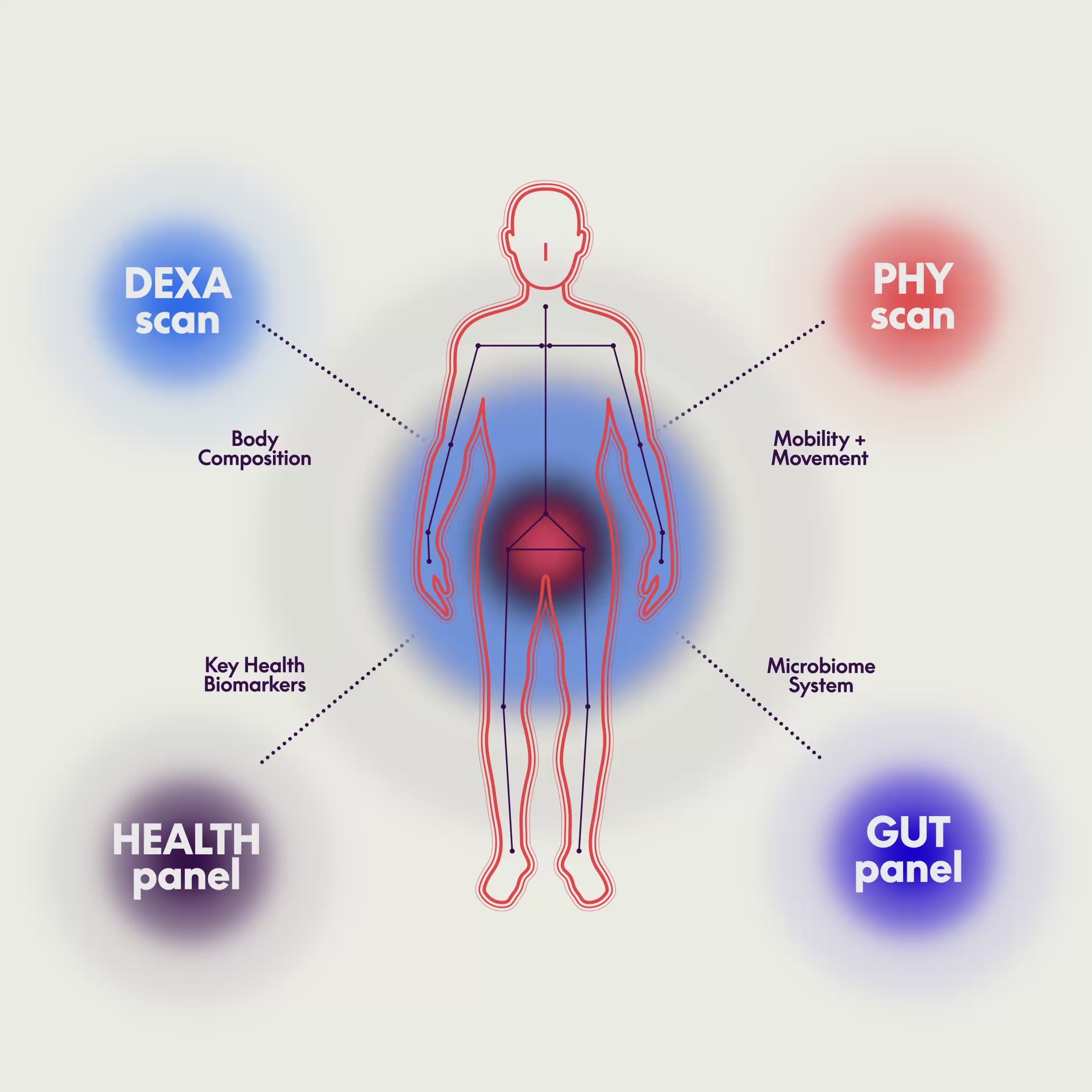
Unlock the power of your data
All of our four services are curated to provide a comprehensive body overview, each offering precise, insightful data and actionable recommendations.
Our advanced scanning technology and in-depth biomarker testing, provide data-driven insights to optimize your health, wellness and longevity.
A whole-body composition DEXA scan provides a detailed analysis of your overall mass, lean mass, body fat %, visceral fat, bone density and more, which is crucial in tracking overall health and wellness.
Learn moreOptimize your body alignment with a PHY scan to measure body misalignments with precision and improve mobility and flexibility. With a 6-week course of custom stretch exercises to realign the body.
Learn moreHEALTH panel
Gain key insights on 17+ health biomarkers
Get essential insights on over 17 health biomarkers with a quick finger-stick blood test.
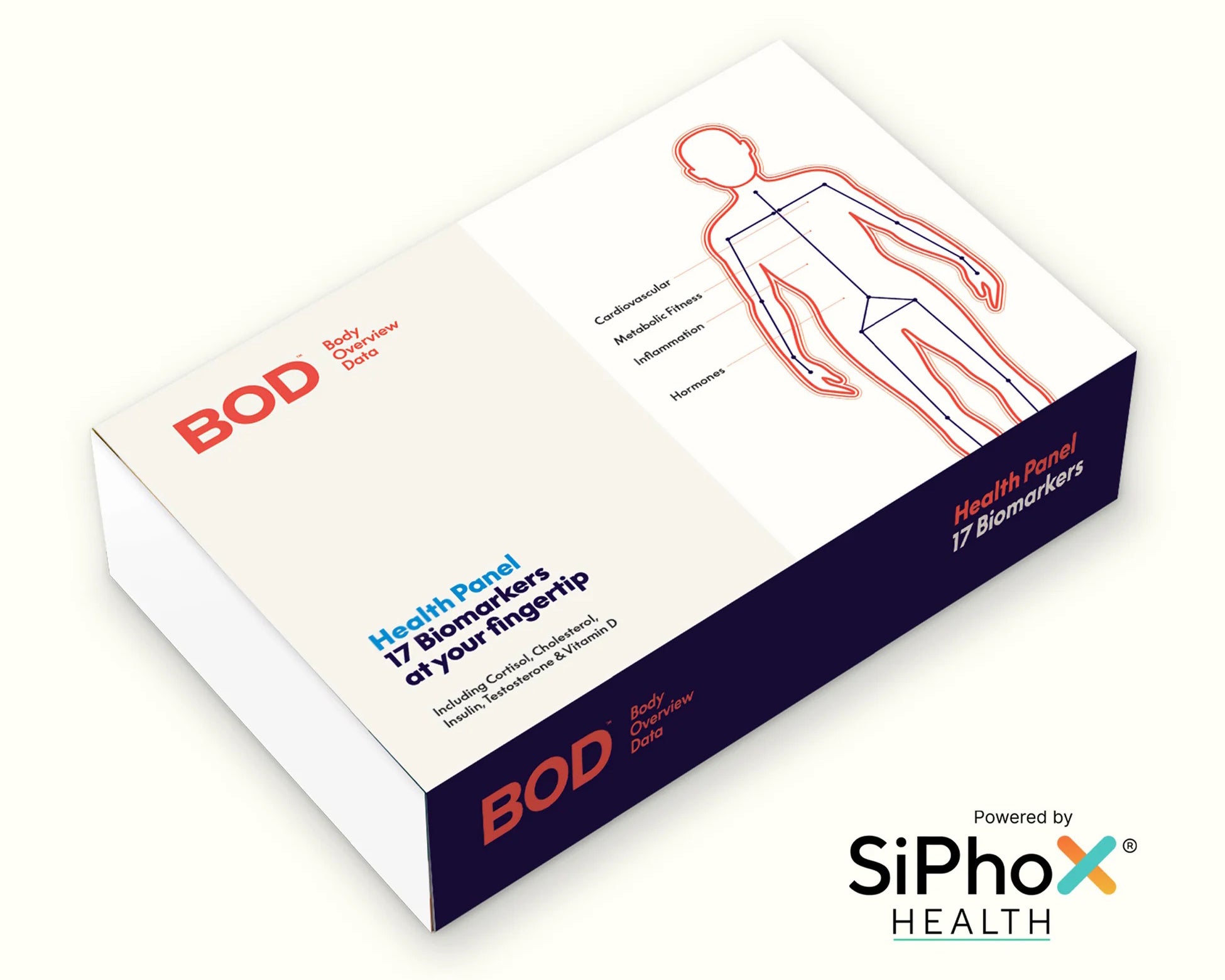
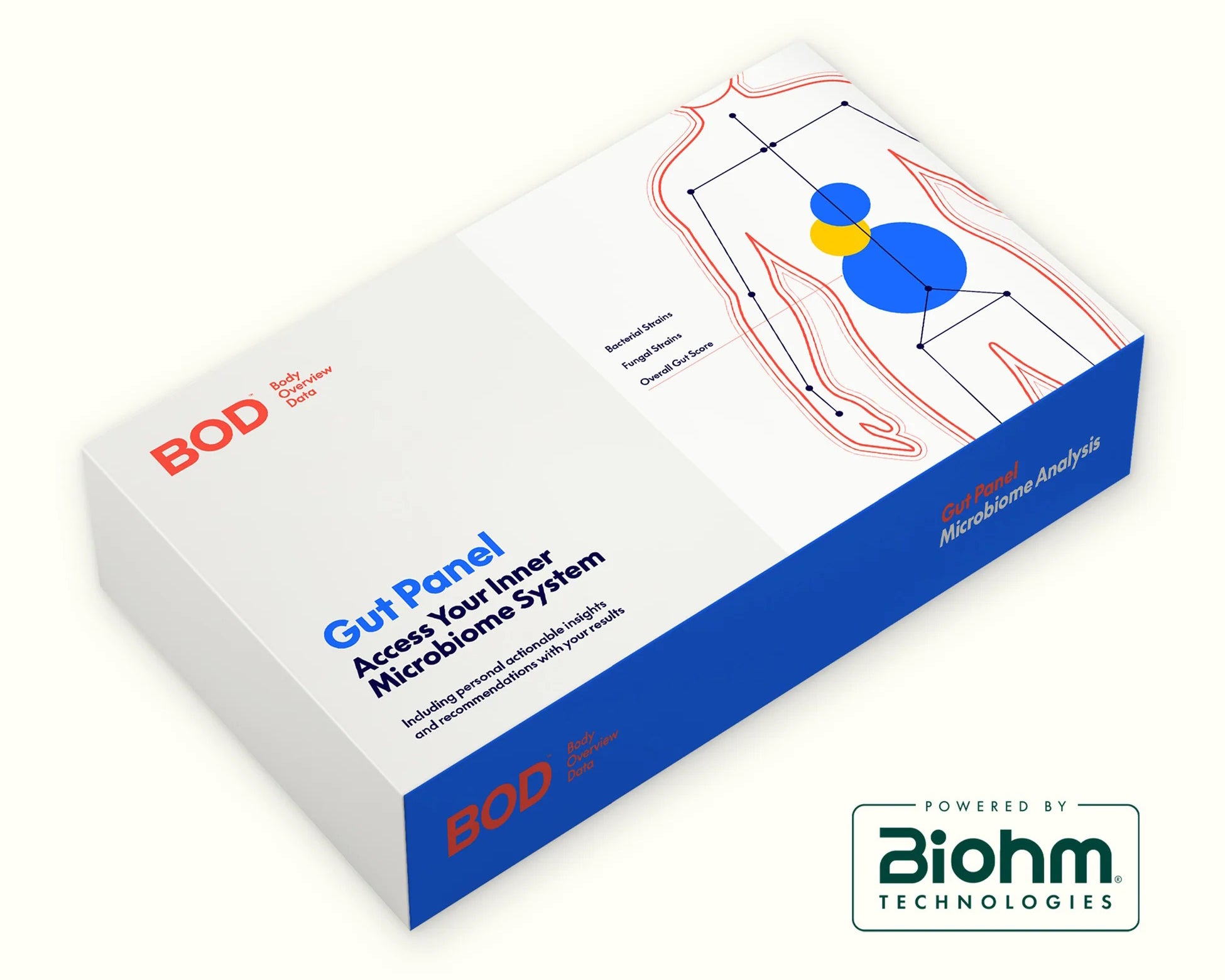
GUT panel
Access your inner microbiome system
Discover the significance of gut health for your overall wellbeing through an easy at-home sample collection.
Tracking for success
BOD isn't just a one-time health check; it's a new adoptable approach to better health.
Tracking how your body changes over time, with easily accessible data in your own personal dashboard, is proven to deliver better results, secure change and drive transformation.
With each visit, a complimentary consultation with a BOD coach for personalized advice is included.




